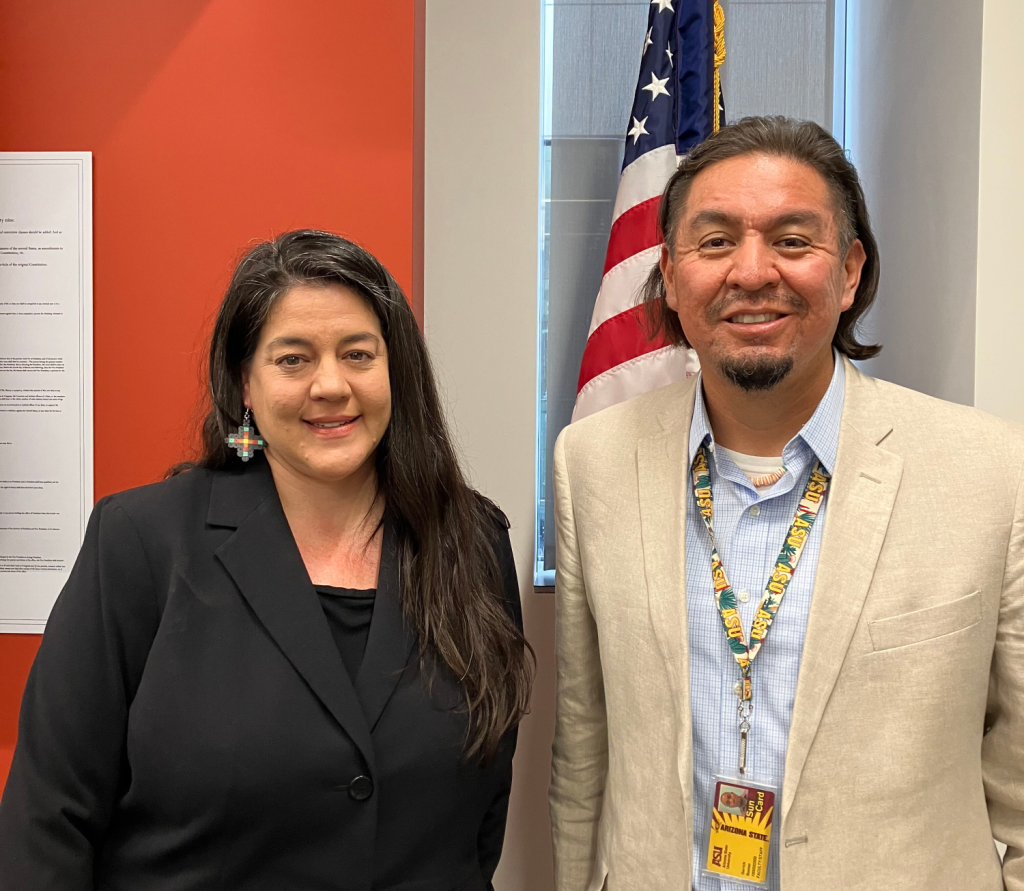
On March 14, NALSA and the American Constitution Society co-hosted a lecture discussion on the U.S. Supreme Court case Arizona v. Navajo Nation. Both Director Derrick Beetso (’10) and Heather Whiteman Runs Him, director of the Tribal Justice Clinic at the University of Arizona, worked with their respective teams and filed an amicus brief in support of the Supreme Court case.
Beetso and the Indian Legal Clinic recently filed an amicus brief on behalf of the Diné Hataałii Association. The brief gives a human identity because it gives an understanding of who the people are. Whiteman Runs Him, with her team, also filed an amicus brief that focuses on the United States v. Winters decision of 1908 on behalf of tribal governments, the National Congress of American Indians (NCAI), the Affiliated Tribes of Northwest Indians and the San Luis Rey Indian Water Authority.
Whiteman Runs Him explains the legal framework of the Winters case: “when the United States sets aside and reserves land for a permanent homeland for an Indian Tribe, like it did in the Treaty with the Navajo Nation, there’s an implied reservation of enough water, sufficient amount of water, to fulfill the purposes of that reservation. Based on that purpose for which the Navajo Nation reservation was set aside, there should be some affirmative duty on the U.S. to take meaningful actions to secure that water and bring that water to a point where the Navajo Nation can use it, rely on it and build on it. And that has not happened.”
